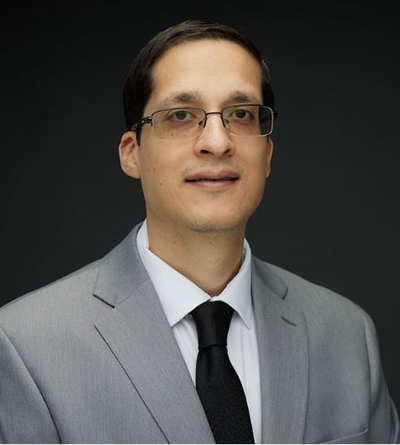

Christian Cepeda, Medical Student
Christian Cepeda is a medical student at the University of California, and a 2026 recipient of the STFM Foundation Medical Student Scholarship.

Melfry Gonzalez, Medical Student
Melfry Gonzalez is a medical student at the University of South Carolina Greenville, and a 2026 recipient of the STFM Foundation Medical Student Scholarship.

Mike Mayer, Medical Student
Mike Mayer is a medical student at Stanford University and a 2026 recipient of the STFM Foundation Medical Student Scholarship.

Angelica Mendez, Medical Student
Orion Battaglia is a medical student at the the University of Southern California and a 2026 recipient of the STFM Foundation Medical Student Scholarship.

Scott Orlov, Medical Student
Scott Orlov is a medical student at Sidney Kimmel Medical College at Thomas Jefferson University in Philadelphia and a 2026 recipient of the STFM Foundation Medical Student Scholarship.

Maddy Pesch, Medical Student
Maddy Pesch is a medical student at University of Minnesota and a 2026 recipient of the STFM Foundation Medical Student Scholarship.

Benjamin Popokh, Medical Student
Benjamin Popokh is a medical student at the University of Texas Southwestern, and a 2026 recipient of the STFM Foundation Medical Student Scholarship.

Ebony White-Manigault, Resident
Ebony White-Manigault, MD, MPH, is a resident at the University of Michigan FMR in Ann Arbor, MI, and a 2025 recipient of the STFM Faculty for Tomorrow Resident Scholarship.

Mahuya Barua, Resident
Mahuya Barua, MD, is a resident at Harbor UCLA Family Medicine Residency Program, Torrance, CA, and a 2025 recipient of the STFM Faculty for Tomorrow Resident Scholarship.

Kelly Dougherty, Resident
Kelly Dougherty, MD, is a resident at Mercy Family Medicine in St. Louis, MO, and a 2025 recipient of the STFM Faculty for Tomorrow Resident Scholarship.

Brianna Griswold, Resident
Brianna Griswold, MD, is a resident at Spartanburg Regional Family Medicine Residency in Spartanburg, SC, and a 2025 recipient of the STFM Faculty for Tomorrow Resident Scholarship.

Abigail Harrison, Resident
Abigail Harrison, DO, is a resident at the University of South Carolina Family Medicine Program in Columbia, SC, and a 2025 recipient of the STFM Faculty for Tomorrow Resident Scholarship.

Ipo Tuinei Hemaloto, Resident
Ipo Tuinei Hemaloto, MD, is a resident at the Hawai'i Island Family Medicine Residency Program in Hilo, HI, and a 2025 recipient of the STFM Faculty for Tomorrow Resident Scholarship.

Cassandra Levitske, Resident
Cassandra Levitske, MD, is a resident at the University of Chicago AdventHealth Hinsdale Family Medicine Residency in Hinsdale, IL, and a 2025 recipient of the STFM Faculty for Tomorrow Resident Scholarship.

Joe Li, Resident
Joe Li, DO, MPH, MBS, is a resident at Mount Sinai Downtown Residency in Urban Family Medicine in New York, NY, and a 2025 recipient of the STFM Faculty for Tomorrow Resident Scholarship.

Alanna Meadows, Resident
Alanna Meadows, DO, is a resident at Emory University in Atlanta, GA, and a 2025 recipient of the STFM Faculty for Tomorrow Resident Scholarship.

Michael North Jr., Resident
Michael North Jr., MD, is a resident at Medical University of South Carolina Family Medicine Residency Program in Charleston, SC, and a 2025 recipient of the STFM Faculty for Tomorrow Resident Scholarship.

Opeoluwa Olukorede, Resident
Opeoluwa Olukorede, MD, MS, is a resident at Worcester Family Medicine Residency at UMass Chan Medical School in Worcester, MA, and a 2025 recipient of the STFM Faculty for Tomorrow Resident Scholarship.

Raghava Sekhar, Resident
Raghava Sekhar, MBBS, is a resident at Aiken Regional Medical Centers FMR Program in Aiken, SC, and a 2025 recipient of the STFM Faculty for Tomorrow Resident Scholarship.

Pablo Sisiruca, Resident
Pablo Sisiruca, MD, is a resident at Tower Health FMR Program in Reading, PA, and a 2025 recipient of the STFM Faculty for Tomorrow Resident Scholarship.

Sawyer Sparks, Resident
Sawyer Sparks, DO, is a resident at UAMS Northeast Family Medicine Regional Program in Jonesboro, AR, and a 2025 recipient of the STFM Faculty for Tomorrow Resident Scholarship.

Andy Thomas, Resident
Andy Thomas, is a resident at University of Alabama FMR in Tuscaloosa, AL, and a 2025 recipient of the STFM Faculty for Tomorrow Resident Scholarship.

Doreen Ebere Ugwuede, Resident
Doreen Ebere Ugwuede, MBBS, is a resident at Department of Family and Preventive Medicine, UAMS, in Little Rock, AR, and a 2025 recipient of the STFM Faculty for Tomorrow Resident Scholarship.



